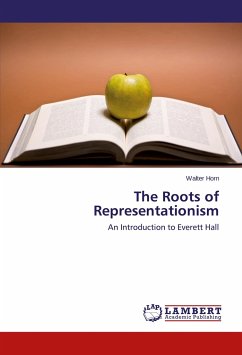American philosopher Everett W. Hall (1901-1960) was among the first epistemologists writing in English to have promoted representationism, a currently popular explanation of cognition. According to this theory, there are no private sense-data or qualia: the representation of publicly perceivable, common-sense properties is considered sufficient to explain mental content. In this timely volume, Hall scholar Walter Horn provides copious excerpts from Hall's works in epistemology, metaphysics, and philosophy of language, as well as his own commentaries on Hall's unique blend of linguistic idealism and common-sense realism. Also included are correspondence from Hall to Wilfrid Sellars on linguistic formalism, published here for the first time, and illuminating papers by Romane Clark, Fred Dretske, Reginald McLelland, Thomas Natsoulas, Richard Rorty, and Amie Thomasson. Covering metaphilosophy, intentionality of perception, naïve realism, and linguistic relativism, in addition to documenting Hall's public disagreements with Moore, Carnap, Wittgenstein, Quine and Sellars, The Roots of Representationism is essential reading for students of 20th Century analytic philosophy.
Bitte wählen Sie Ihr Anliegen aus.
Rechnungen
Retourenschein anfordern
Bestellstatus
Storno








